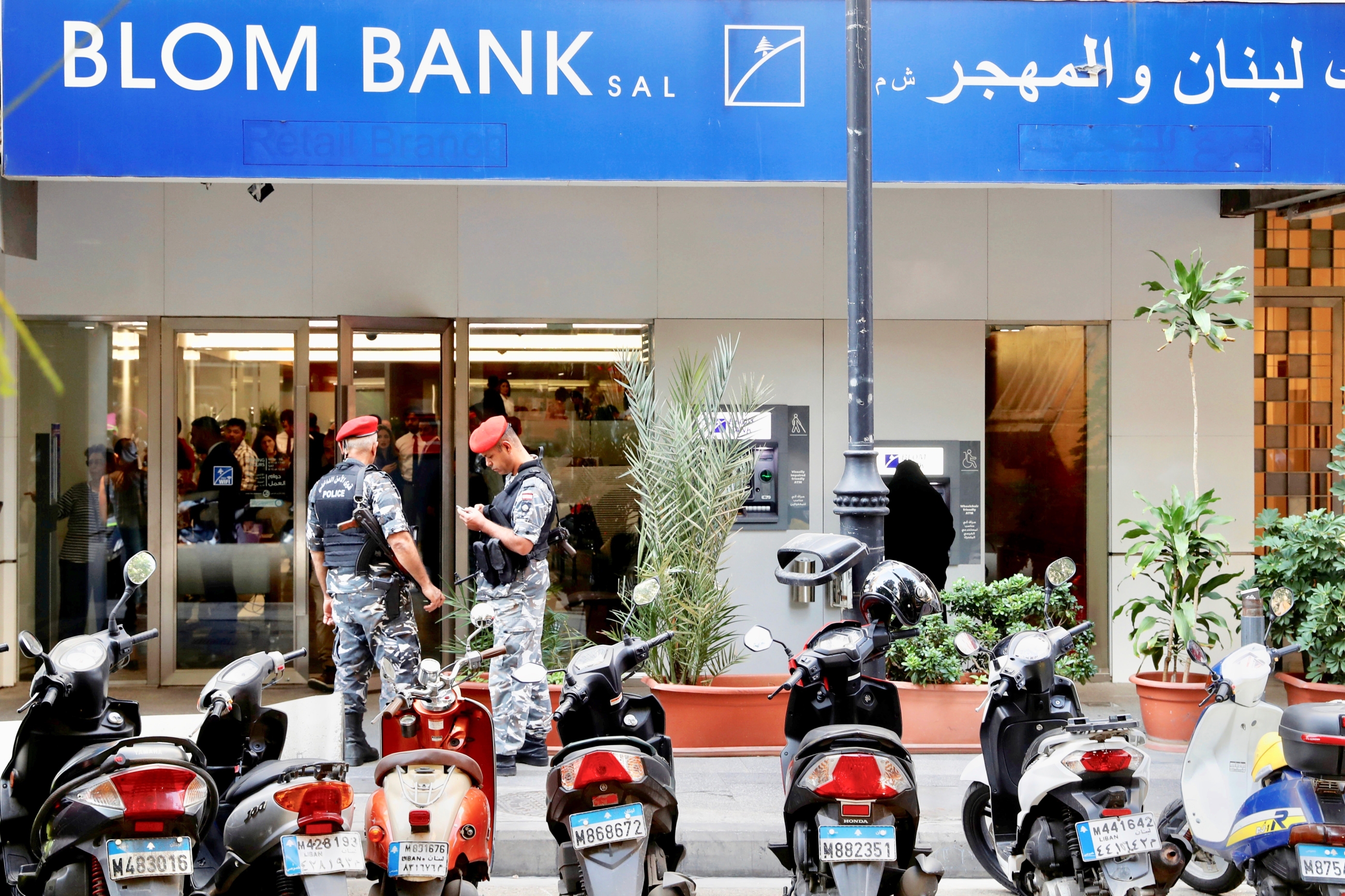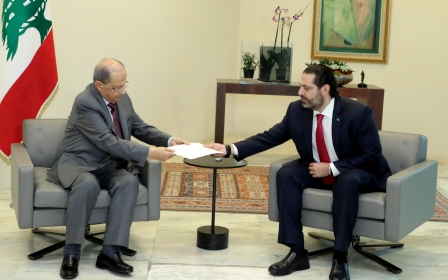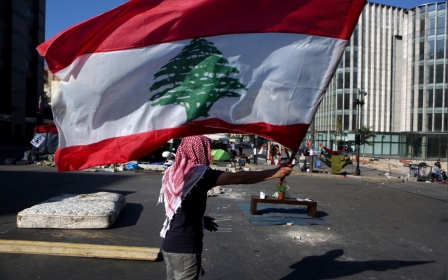Lebanon's banks see no 'extraordinary movement' of money on reopening

Lebanon's banks did not see "any extraordinary movement" of money on Friday or Saturday, the first two days they reopened to the public after a two-week closure amid nationwide protests, the head of the banking association said on Saturday.
"The reaction was almost the way we expected and anticipated. However, people were asking a lot of questions, and we provided as much assurances as possible," Salim Sfeir, head of the Association of Banks in Lebanon, told Reuters by email.
Central bank governor Riad Salameh said the reopening of banks had not seen any disturbances. "This is important given the long period of shut down and the events our country went through," he told Reuters in written comments.
Analysts and bankers had cited widespread concern about a potential rush by depositors to withdraw their savings or transfer them abroad when the banks reopened amid diminished protests.
The nationwide protests that erupted on 17 October tipped Lebanon into political turmoil as it grapples with the worst economic crisis since the 1975-90 civil war. The uprisings led Saad al-Hariri to quit as prime minister earlier this week.
"We are trying to counter rumours and avoid panic in order to prevent any unnecessary and unjustified withdrawals," Sfeir said.
When banks opened their doors on Friday, no formal capital controls were imposed, but customers encountered new curbs on transfers abroad and on withdrawals from US dollar accounts, bankers and customers said.
"No formal capital controls are considered," Salameh said on Saturday, adding that such a move would require a vote in parliament.
Amid rain, protest activity was low on Saturday, though there were calls on social media for gatherings in Beirut later in the day.
Still, thousands of Lebanese flocked together in Tripoli on Saturday, an AFP reporter said, to keep a protest movement alive in a northern city dubbed "the bride of the revolution".
Despite its reputation for conservatism, impoverished Tripoli has emerged as a festive nerve centre of anti-corruption demonstrations across Lebanon.
The movement has lost momentum in the capital Beirut since the government resigned this week, but in the Sunni-majority city of Tripoli it was still going strong.
In the main square, protesters waved Lebanese flags and held aloft mobile phones as torches, before bellowing out the national anthem in unison, the reporter said.
Middle East Eye delivers independent and unrivalled coverage and analysis of the Middle East, North Africa and beyond. To learn more about republishing this content and the associated fees, please fill out this form. More about MEE can be found here.





